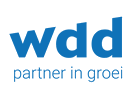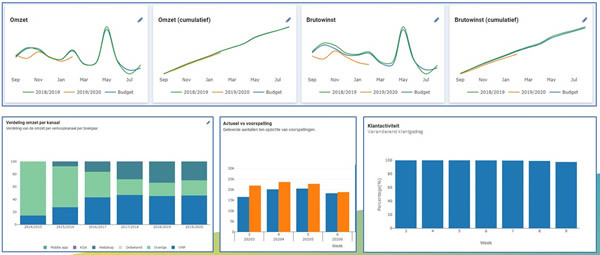 Many traders still use their well-honed instincts to predict demand. These traders are in the fruit and vegetable and flower sectors. "I understand this approach," says Jasper Veldt of the Dutch data company, WDD.
Many traders still use their well-honed instincts to predict demand. These traders are in the fruit and vegetable and flower sectors. "I understand this approach," says Jasper Veldt of the Dutch data company, WDD.
"The data, however, does not always correspond. You can see this when we load data into our prediction module. For the floricultural sector, these modules have a 90-95% accuracy rate for the next two days."
"We supply a management dashboard to many flower-trading companies. That allows clients to see how each of their client and seller's turnover and price formation is proceeding. It is a great module, but it is not any different from what our colleagues have. What differentiates our approach is that we link a prediction module to the dashboard. We can make exact forecasts. These are based not only on historical data and machine learning. External factors such as public holidays, seasonal influences, and weather conditions are also included," says Jasper.
"And that is information every fresh produce company can use. If you predict demand well, you can plan work well too. You can also better determine price formations. We do an analysis for each client. If sales or profits deviate above a certain percentage, the company is immediately informed. So, the buyer or seller, for example, is far more actively involved with the data facts."
"A vendor can often remember many transactions, especially the larger accounts. But software is always smarter and it recognizes patterns. If, for instance, a client buys products A to D, but not product E, while similar clients do, our software reports this right away," continues Jasper.
Machine learning
WDD began its work in the floricultural sector and expanded into the fruit and vegetable world. "The idea was to start with foodservice suppliers. But we did not predict the corona crisis. The software is, unfortunately, not that clever yet. On the other hand, our application does give a good picture of the new reality."
"There is a lot of talk about Artificial intelligence. But I find Machine Learning covers our package's load better. We do not rediscover the wheel each time. We allow the system to continue learning. We link it to external sources like weather forecasts. So the predictions become more accurate. We think we can have a lot of added value to places like processors," says Veldt.
Jasper grew up in North Holland, between the cabbages and potatoes. After studying Small Business, he started working at a tulip nursery. Veldt later became co-owner. He then worked his way up to director at an orchid farm. In recent years he has been helping a flower commissioner with its digital transformation. Marketing WDD's software is the latest challenge.
"We are bringing something very new to both the fruit and vegetable and flower sectors. Both sectors are very specific, with high turnover rates. They also have high loss risk, and clients expect very reliable supplies. Combine that with not only product availability and supply uncertainty. But also with clients' erratic demands, like promotions or hoarding."
"That makes forecasting and planning challenging. There too, 100% digital solutions help. Users pay for services rendered based on monthly subscription prices. WDD has already invested in specific, fresh market-suited solutions. So, the software is ready to use," adds Jasper.
He has noticed that many vendors are skeptical about the solutions. "A little acceptance is needed. You need to experience that a computer program can assess demand better. But, the human factor is costly. At the same time, we see users become enthusiastic when they see the possibilities. In the beginning, the predictions will vary by 25-30%. We need about three months to fully analyze the data and set up the software. But then it is 90-95% accurate. That can mean real money for companies," concludes Jasper.
 For more information:
For more information:
Jasper Veldt
WDD
Mob: +31 (0) 682 958 606
Email: jjveldt@yahoo.com
Website: www.wdd.nl

